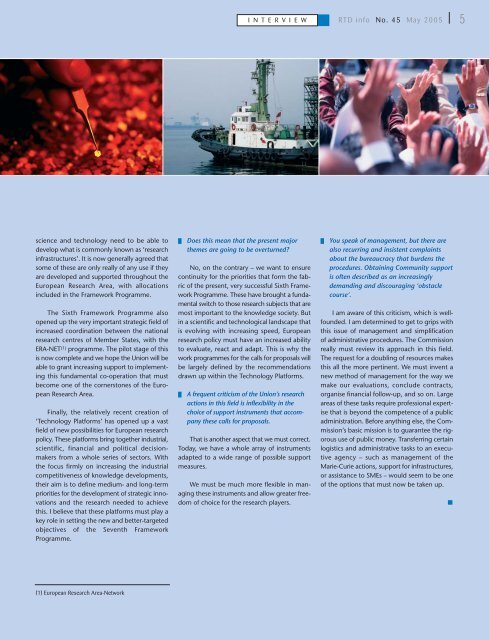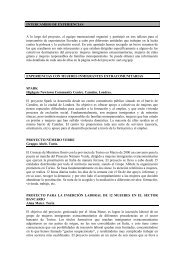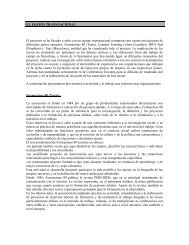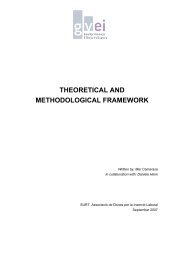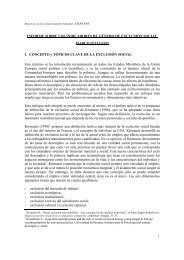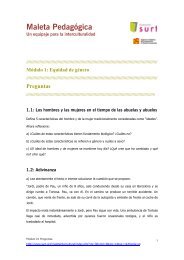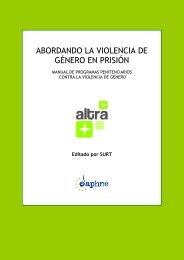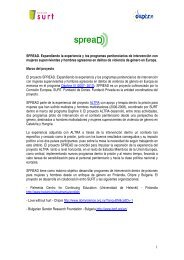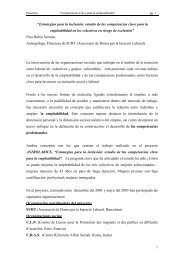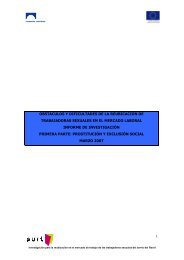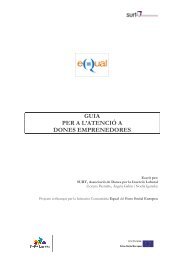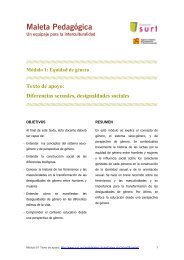RTD info MAYO 2005 - Surt
RTD info MAYO 2005 - Surt
RTD info MAYO 2005 - Surt
You also want an ePaper? Increase the reach of your titles
YUMPU automatically turns print PDFs into web optimized ePapers that Google loves.
I N T E R V I E W <strong>RTD</strong> <strong>info</strong> No. 45 May <strong>2005</strong>5science and technology need to be able todevelop what is commonly known as ‘researchinfrastructures’. It is now generally agreed thatsome of these are only really of any use if theyare developed and supported throughout theEuropean Research Area, with allocationsincluded in the Framework Programme.The Sixth Framework Programme alsoopened up the very important strategic field ofincreased coordination between the nationalresearch centres of Member States, with theERA-NET (1) programme. The pilot stage of thisis now complete and we hope the Union will beable to grant increasing support to implementingthis fundamental co-operation that mustbecome one of the cornerstones of the EuropeanResearch Area.Finally, the relatively recent creation of‘Technology Platforms’ has opened up a vastfield of new possibilities for European researchpolicy. These platforms bring together industrial,scientific, financial and political decisionmakersfrom a whole series of sectors. Withthe focus firmly on increasing the industrialcompetitiveness of knowledge developments,their aim is to define medium- and long-termpriorities for the development of strategic innovationsand the research needed to achievethis. I believe that these platforms must play akey role in setting the new and better-targetedobjectives of the Seventh FrameworkProgramme.Does this mean that the present majorthemes are going to be overturned?No, on the contrary – we want to ensurecontinuity for the priorities that form the fabricof the present, very successful Sixth FrameworkProgramme. These have brought a fundamentalswitch to those research subjects that aremost important to the knowledge society. Butin a scientific and technological landscape thatis evolving with increasing speed, Europeanresearch policy must have an increased abilityto evaluate, react and adapt. This is why thework programmes for the calls for proposals willbe largely defined by the recommendationsdrawn up within the Technology Platforms.A frequent criticism of the Union’s researchactions in this field is inflexibility in thechoice of support instruments that accompanythese calls for proposals.That is another aspect that we must correct.Today, we have a whole array of instrumentsadapted to a wide range of possible supportmeasures.We must be much more flexible in managingthese instruments and allow greater freedomof choice for the research players.You speak of management, but there arealso recurring and insistent complaintsabout the bureaucracy that burdens theprocedures. Obtaining Community supportis often described as an increasinglydemanding and discouraging ‘obstaclecourse’.I am aware of this criticism, which is wellfounded.I am determined to get to grips withthis issue of management and simplificationof administrative procedures. The Commissionreally must review its approach in this field.The request for a doubling of resources makesthis all the more pertinent. We must invent anew method of management for the way wemake our evaluations, conclude contracts,organise financial follow-up, and so on. Largeareas of these tasks require professional expertisethat is beyond the competence of a publicadministration. Before anything else, the Commission’sbasic mission is to guarantee the rigoroususe of public money. Transferring certainlogistics and administrative tasks to an executiveagency – such as management of theMarie-Curie actions, support for infrastructures,or assistance to SMEs – would seem to be oneof the options that must now be taken up.(1) European Research Area-Network


